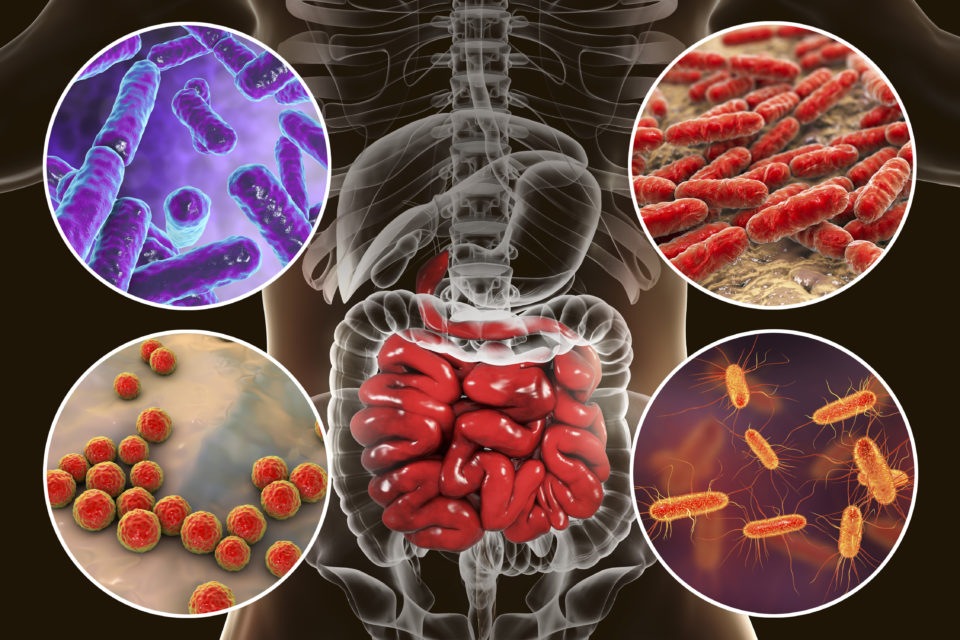
Here are the top stories covered by DocWire News this week in the Hematology & Oncology section. This week, a study found a correlation between gut microbiome and the spread of breast cancer, researchers found that gene therapy may be an effective treatment strategy in thalassemia, and more.
Gut bacteria may be closely linked to breast cancer metastasis, according to a study published in Cancer Research. The researchers manipulated the natural gut bacteria in rodent models with hormone receptor-positive (HR+) breast cancer to cause inflammation systemically and within the mammary tissue. This inflammation allowed tumor cells to spread from the tissue throughout the blood and lungs. According to study author Melanie Rutkowski, PhD, this is a major HR+ metastasis site. The findings are significant because the majority of breast cancers (at least 65%) are HR+. While the study was limited due to its use of animal models, the researchers suggested that an unhealthy gut microbiome could be a risk factor for invasive or metastatic breast cancer. Lifestyle modifications like maintaining a healthy diet, exercising, and getting enough sleep could help humans achieve a healthy microbiome.
Gene therapy could be an effective treatment for thalassemia, researchers have found. The results of the study were presented at the 24th Congress of European Hematology Association (EHA) by Dr. Antonella Nai of the San Raffaele Scientific Institute in Milan, Italy. Dr. Nai and colleagues combined two experimental approaches to treat thalassemia in a mouse model. They first used TMPRSS6 gene-specific antisense oligonucleotides (ASOs) to decrease excess iron. Second, they deleted the TFR2 gene in the bone marrow using gene therapy. This increases erythropoietin sensitivity in the bone marrow cells and improves red blood cell production. This two-pronged approach significantly improved anemia and increased red blood cell and hemoglobin concentrations in the mouse model. Dr. Nai noted that the treatment holds promise for some patients—notably younger patients—but also comes at a high cost.
A study published in JAMA Oncology found treating advanced metastatic triple-negative breast cancer (TNBC) with combination niraparib (ZEJULA) and pembrolizumab (KEYTRUDA) may be effective. The study included 55 patients with advanced or metastatic TNBC who received 200 mg of niraparib orally once daily in conjunction with 200 mg of intravenous pembrolizumab on day one of a series of 21-day cycles. The primary outcome was patients’ objective response rate (ORR) per the Response Evaluation Criteria in Solid Tumors, version one. One of the secondary outcomes was disease control rate (DCR; complete response plus partial response plus stable disease). Five patients had confirmed complete responses, five had confirmed partial responses, 13 had stable disease, and 24 had progressive disease. Among the 47 efficacy-evaluable patients, ORR comprised 10 patients and DCR included 23 patients. Out of 15 evaluable patients with tumor BRCA mutations, ORR and DCR included seven and 12 patients, respectively.
Potent inhibitors of NADK (NAD Kinase) maybe be able to not only enhance the treatment of T-cell acute lymphoblastic leukemia (T-ALL) but also minimize side effects, a new study concluded. The results were presented at the 24th Congress of the EHA and published in Blood. The study team used CRISPR-Cas9 technology to screen T-ALL cell lines with NOTCH1 overexpression or mutation, and in a cell line not dependent on NOTCH1. This allowed them to identify 69 NOTCH-specific genes as well as a group connected to reduction of reactive oxygen species (ROS). They focused on the NADK gene. Once NADP+ is reduced to form NADPH, it can then reduce ROS levels by creating reduced Glutathione. The researchers found that the NOTCH1-driven T-ALL cells create large quantities of ROS, and that NOTCH1 signals NADK to protect the cells from these ROS, allowing proliferation and cancer growth. When inhibiting NADK, ROS levels in NOTCH1-driven cells increased, ultimately leading to significant decreases in cell proliferation.







 © 2025 Mashup Media, LLC, a Formedics Property. All Rights Reserved.
© 2025 Mashup Media, LLC, a Formedics Property. All Rights Reserved.